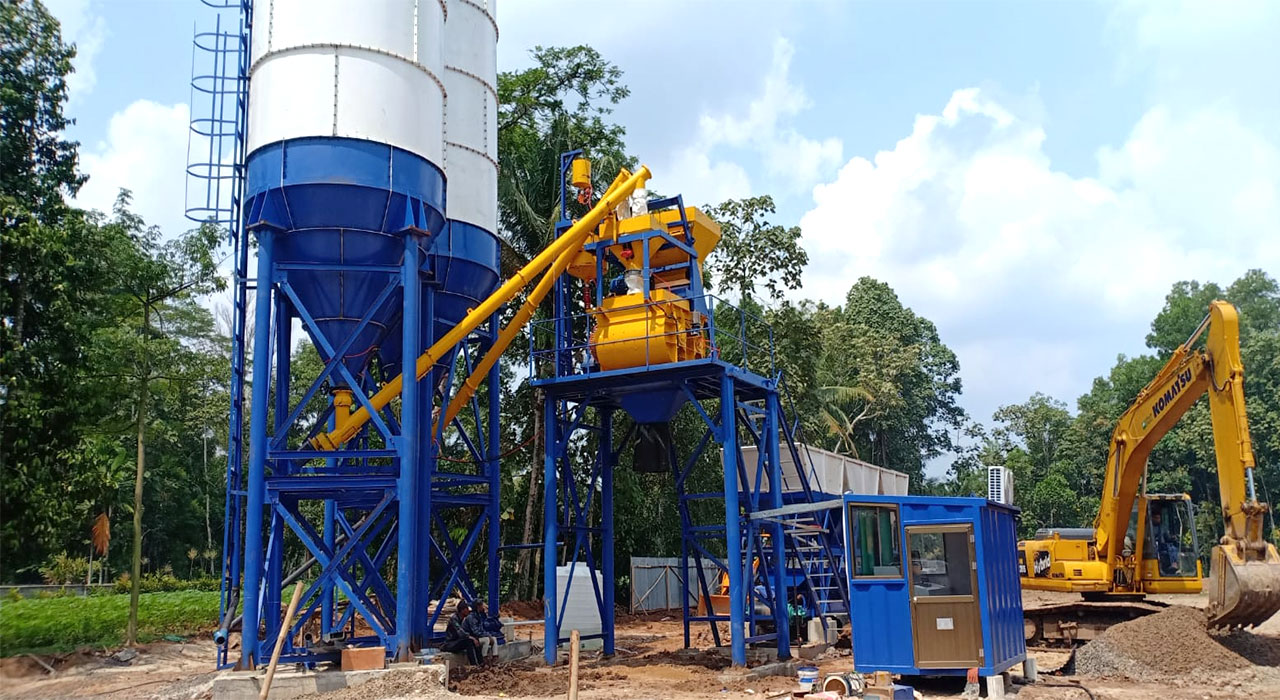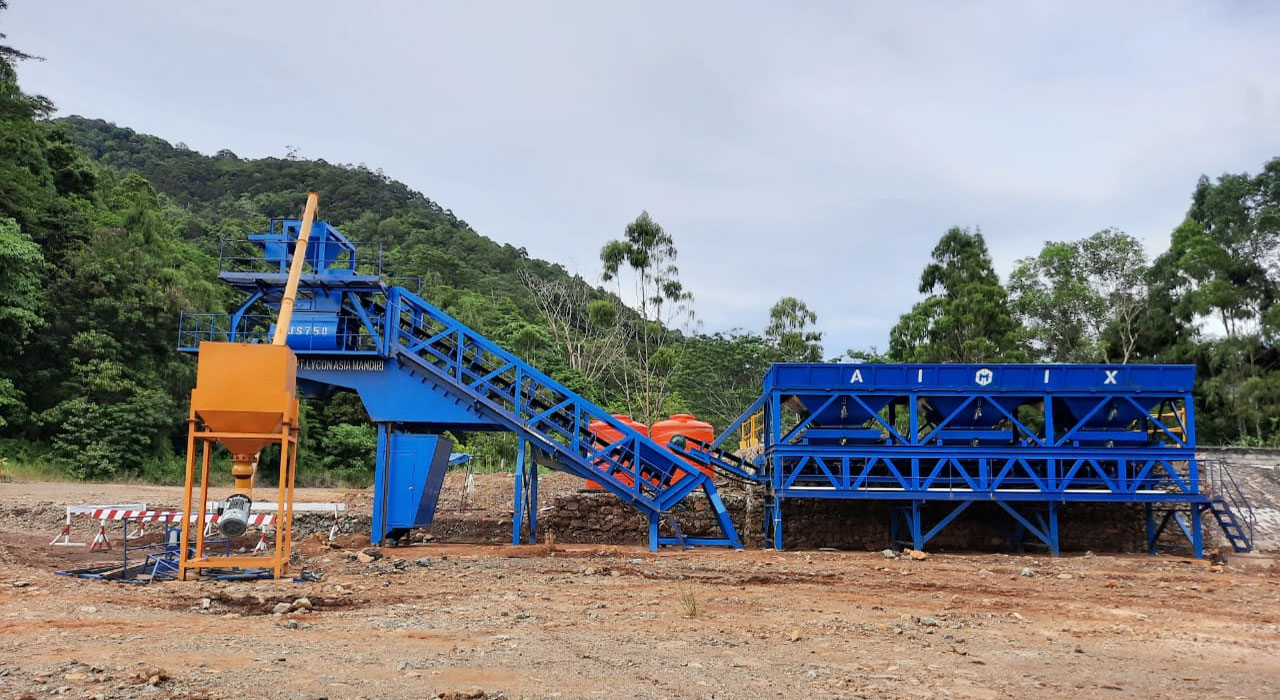Controlling costs in concrete batch plants is essential for the success and profitability of any construction business. These plants are vital for producing high-quality concrete efficiently, but they can also be a significant source of expenses. To ensure that your concrete batch plant operates cost-effectively, it’s crucial to implement efficient cost-control strategies.

Efficient Material Management
One of the most significant costs in concrete production is raw materials, including cement, aggregates, and additives. To control costs effectively, consider the following measures:
a. Proper Inventory Management:
Maintain an optimal inventory level of materials to prevent overstocking and unnecessary storage costs. Regularly monitor material consumption and reorder as needed.
b. Quality Control:
Ensure that materials meet the required quality standards to minimize waste and the need for rework.
c. Bulk Purchasing:
Negotiate bulk purchasing agreements with material suppliers to secure discounts and lower per-unit costs.
Energy Efficiency
Energy consumption is another substantial cost in concrete batch plant operation. Implement energy-saving practices to reduce operational expenses:
a. Use Efficient Equipment:
Invest in energy-efficient machinery for the concrete batching plant Malaysia, such as high-efficiency mixers and conveyors, to minimize power consumption.
b. Regular Maintenance:
Keep equipment well-maintained to prevent energy wastage due to malfunctioning or inefficient components.
c. Optimize Scheduling:
Batch concrete during off-peak hours to take advantage of lower energy rates, if available.
Labor Optimization
Labor costs are a significant part of operating expenses in concrete batch plants. To manage these costs:
a. Cross-Train Employees:
Cross-training employees allows for flexibility in work assignments, reducing the need for additional labor during peak periods.
b. Labor Efficiency:
Establish clear operating procedures and train employees to operate efficiently, reducing idle time and unnecessary labor hours.
c. Workforce Planning:
Plan staff schedules based on production requirements, so you don’t have more employees on-site than necessary.
Preventive Maintenance
Preventive maintenance is crucial for avoiding costly breakdowns and repairs. Regularly scheduled maintenance can help you control costs in the long run:
a. Develop a Maintenance Schedule:
Create a comprehensive maintenance schedule for all equipment, including mixers, conveyors, and control systems.
b. Replace Worn Components:
Keep an inventory of spare parts and replace worn components promptly to prevent further damage and costly repairs.
c. Train Maintenance Staff:
Ensure that your maintenance staff is well-trained and familiar with the equipment to perform effective and efficient maintenance.
Quality Control and Waste Reduction
Controlling costs also involves minimizing waste and rework:
a. Implement Quality Control Processes:
Implement stringent quality control procedures to reduce the need for rework and waste due to subpar concrete.
b. Track Material Consumption:
Keep a detailed record of material consumption to identify and address any deviations from the standard mix design.
c. Recycle Excess Concrete:
Implement a system in a small concrete batching plant to recycle excess or leftover concrete, reducing material and disposal costs.
Technology Integration
Leverage technology to improve efficiency and reduce costs:
a. Automation:
Consider automating batch processes to reduce the risk of errors and save on labor costs.
b. Monitoring Systems:
Install monitoring systems that track equipment performance, helping identify inefficiencies and maintenance needs in real-time.
c. Data Analysis:
Analyze production data to identify cost-saving opportunities and optimize operations.
Environmental Compliance
Compliance with environmental regulations is essential for avoiding fines and ensuring sustainable operations. Failure to comply can result in costly legal actions and damage to your company’s reputation. Therefore:
a. Stay Informed:
Keep up-to-date with environmental regulations and ensure your plant meets all requirements.
b. Invest in Eco-Friendly Technologies:
Consider eco-friendly technologies, such as dust collection systems, to reduce emissions and environmental impact.
c. Regular Audits:
Conduct regular audits to confirm compliance with environmental standards and make any necessary improvements.
Conclusion
Cost control in concrete batch plants is a multifaceted endeavor that requires attention to various aspects of operations. By efficiently managing materials, optimizing energy usage, minimizing labor costs, implementing preventive maintenance, focusing on quality control, embracing technology, and ensuring environmental compliance, you can significantly reduce operating expenses. These strategies not only enhance profitability but also contribute to the long-term sustainability of your ready mix concrete plant. Remember that cost control is an ongoing process that requires vigilance and adaptability to changes in the market and regulations.
